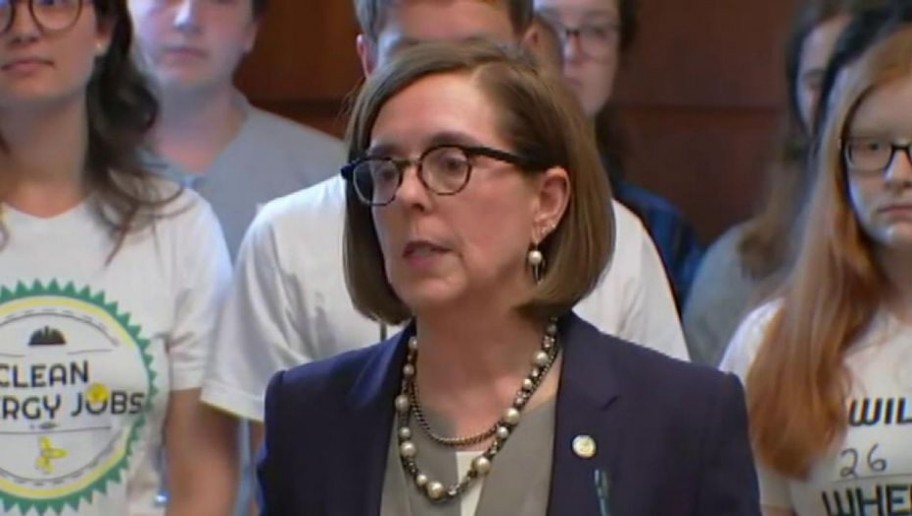Oregon’s Democratic Governor Kate Brown dispatched state police on Thursday to find and bring back 11 Republican lawmakers who walked off the job to avoid a vote on climate change legislation.
According to a CBS report, House Bill 2020 would make Oregon the second state to adopt a cap-and-invest strategy to help combat climate change. But the bill faces stiff opposition from Republicans, who say it could cost the state jobs in the logging industry and cause a spike in fuel prices.
The conflict came to a head on Thursday when 11 GOP lawmakers dodged the vote by fleeing Salem, the state’s capital. In response, Governor Brown authorized state police to go after the missing Republicans.
[the_ad id=”16463″]
“The Senate Republicans have decided to abandon their duty to serve their constituents and walk out,” Brown said in a statement.
“I am authorizing the State Police to fulfill the Senate Democrats’ request,” Brown continued. “It is absolutely unacceptable that the Senate Republicans would turn their backs on their constituents who they are honor-bound to represent here in this building. They need to return and do the jobs they were elected to do.”
This is the second time in two months that Oregon Republicans have walked out in protest of legislation, CBS reported. Last month, Brown made a deal with the GOP after a four-day walkout over a school funding package. After the deal, Republicans promised not to walk out again.
“This is a sad day for Oregon,” Republican Sen. Herman Baertschiger tweeted. “There is no fine that could ever amount to the FEAR democrats have put on Oregonians over the #hb2020 legislation that will destroy livelihoods of many in our state.”
Kate Brown and the effects of polarization on government efficiency
According to an analysis published in 2015 by political scientists Tyler Hughes and Deven Carlson, growing polarization in the United States since 2010 has led to a slowdown in the country’s legislative process.
“Our analysis suggests the average difference in the time to enactment for important legislation between periods of divided and unified government is roughly 60 days,” they said in a summary of their findings. “Two full months is a significant amount of time within a two-year congressional session. Obviously, divided government dramatically slows the speed of the legislative process.”
[the_ad id=”16462″]
About Post Author
You may also like
-
Do I Still Have to Pay Child Support If I Lose My Job?
-
Increasing Your Chances: How a Lawyer Helps You Win Social Security Disability Benefits
-
Legally Untangling Hearts: The Compassionate Guidance of Divorce Attorneys
-
5 Compelling Reasons Why This Yoga App Stretches Beyond the Competition
-
Taylor Benefits Insurance Company Culture: The Hidden Influence Behind Startup Success and Failure
